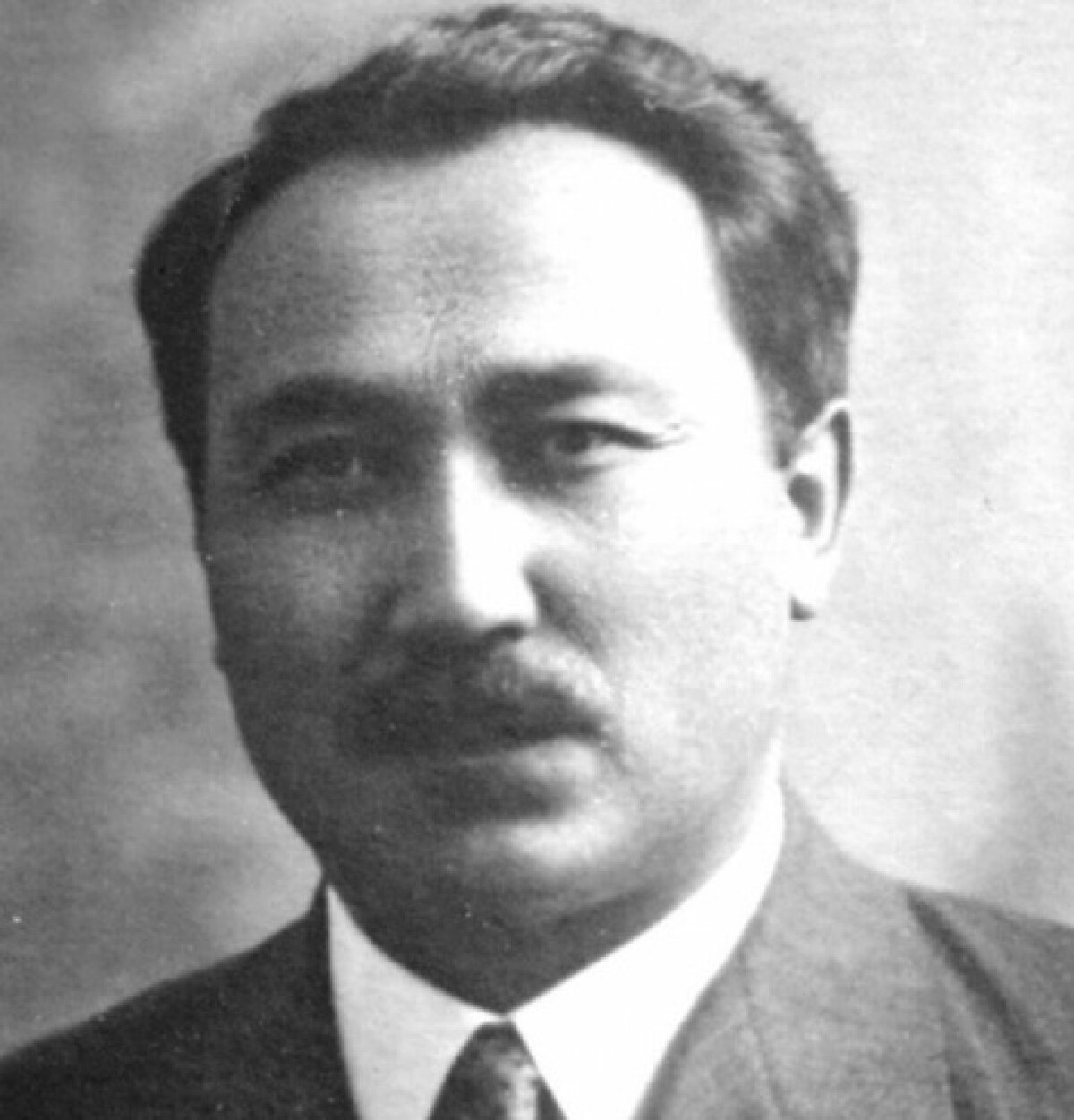Seyfullin Saken
Saken Seyfullin (15 October 1894 – 28 February 1939) was a pioneer of modern Kazakh literature, poet and writer, and national activist. Founder and first head of the Union of Writers of Kazakhstan, he was the author of controversial literature calling for greater independence of Kazakhs from Soviet and Russian power. He met repression and was executed in 1939. The Soviet government posthumously rehabilitated him during de-Stalinization.
Seyfullin was born October, 15 in 1894 in a nomadic settlement (today is Karagandy Province).
From 1905 to 1908, Seyfullin studied in a Russian-Kazakh school in the Spassk brass works. He went on to study in Akmola in the primary parish school and the Akmola three-class city school. In addition, he taught Russian at a Muslim madrasah. On August 21 in 1913, Seifullin entered the Omsk teaching seminary. His first article was published in the November edition of Ay Qap magazine. It was at this time that he began to be spied upon by the Omsk okhrana, the secret police.
In 1914, Seyfullin became one of the heads of the first cultural and educational society of Kazakh youth, Birlik (Unity) in Omsk. His book of poetry (Past Days) was published that year.
In 1916, he worked on a property census commission for the 12 volosts of Akmola Uezd. In that year he wrote the poem Volnenie (Unrest), dedicated to Central Asian unrest in 1916. From September 1 of 1916 he taught in Bugula School, which he had a hand in founding.
On March 9, 1917 he moved to Akmola, where he wrote a welcoming poem for the February revolution. In April of that year, Seyfullin created a social-political and cultural society named Zhas kazak (Young Kazakh). In July, he contributed to an issue of Tirshilik (Life) newspaper. In September, Seyfullin began teaching three-month pedagogical courses in the new Russian-Kazakh school in Akmolinsk.
Right after the Russian Revolution, Seyfullin wrote a poem, "A nu-ka djigiti!" (Now then, dzhigits!), which is said to be the first work of Kazakh Soviet literature. On 27 December 1917, the Soviet regime was established in Akmolinsk. Seyfullin was elected a member of the Akmola Deputy Board and was appointed national commissar of education. In February, he was admitted to the Party. On May,1 1918 his play, "Bakit zholyna" (On the Way of Happiness), was performed for the first time.
When on June 4, 1918, the White Guard conducted a revolution, Seyfullin was arrested and sent to Petropavlovsk jail. He was put in a Death Carriage of Ataman Michael Annenkoff, where he spent 47 days. He broke out of Kolchak Prison and reached his village by July. After two month he was forced to flee for Taraz.
Seyfullin was captured by the agents of the NKVD from Moscow in February 1939 and executed in Almaty, Kazakh SSR, deemed a "threat to the society" and a "nationalist". However, since Independence, Saken Seyfullin is often considered one of the most influential Kazakh thinkers of the 21st century, a major contributor to Kazakh culture and literature, and a martyr for freedom.
Share:









